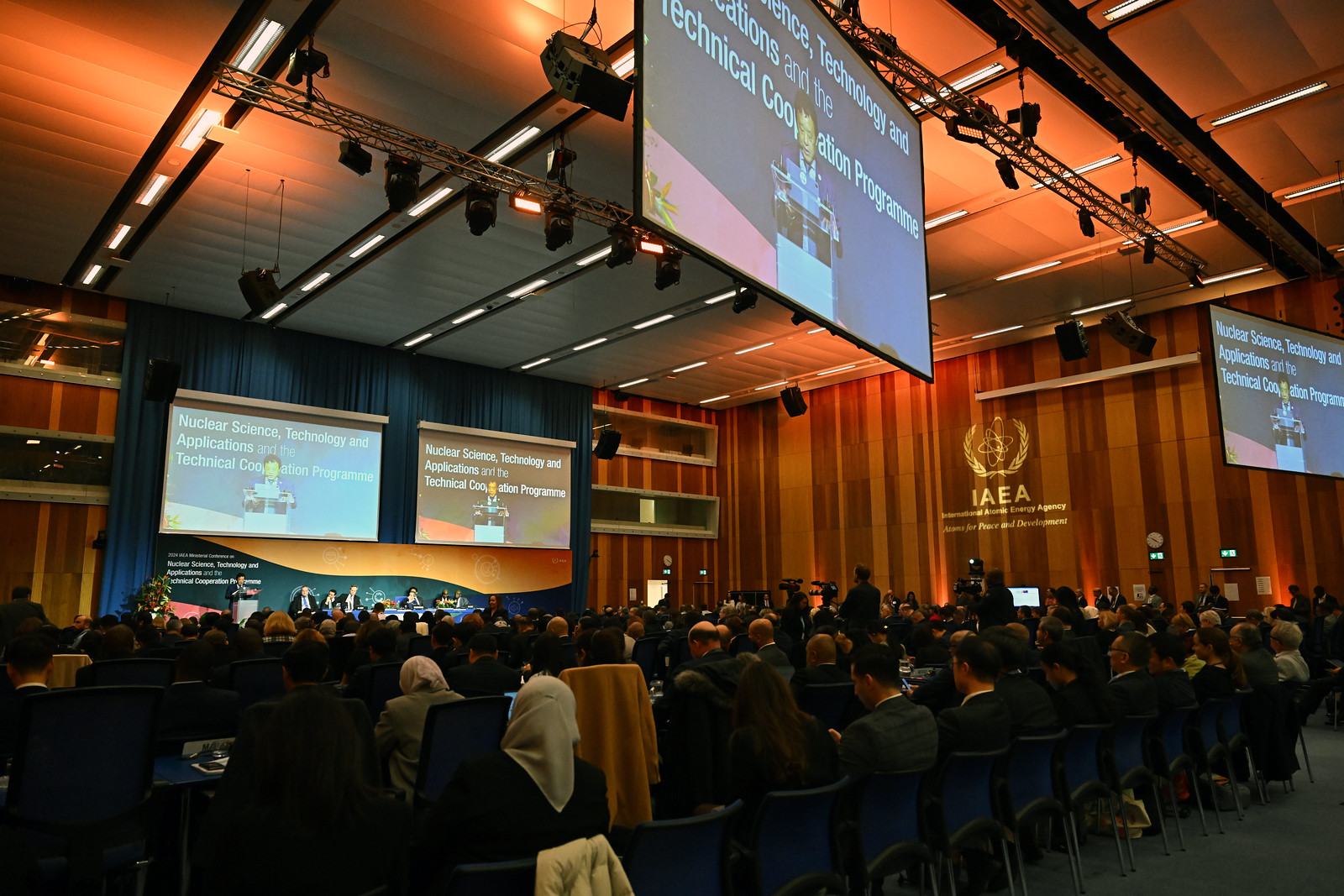
Photo from the IAEA
PH nuclear initiatives tackled in IAEA ministerial confab
The Philippine delegation presented various key initiatives aimed at advancing the country’s nuclear science and technology at the recent 2024 Ministerial Conference of the International Atomic Energy Agency (IAEA) held 26-28 November 2024 in Vienna, Austria.
Foremost among said initiatives is the technical cooperation between the Philippines and the IAEA which has been continually made robust through the years, resulting in various endeavors as reported by Department of Science and Technology (DOST) Undersecretary for Research and Development Leah J. Buendia as head of the delegation.
“We view this conference as an opportunity for IAEA Member States to reaffirm our commitment to realize the full benefits of nuclear applications, and their contribution toward achieving the Sustainable Development Goals,” said Usec Buendia.
She also acknowledged IAEA’s continued support to Philippine initiatives, such as the launch of the country’s first subcritical research reactor.
Usec. Buendia announced updates such as the ongoing process of establishing an independent nuclear regulatory authority through comprehensive legislation and the release of the country’s nuclear energy roadmap which aims to have commercially operational nuclear power plants by 2032.
Also being established is the Nuclear Medicine Research and Innovation Center and Program, a public-private partnership aimed at making cancer diagnosis more accessible and affordable for the public.
Moreover, Usec. Buendia reported the engagement of private partners in the operation of an irradiation facility and manufacture of house construction materials made from upcycled plastic. Relative to this, the DOST has already supported 53 R&D projects that help advance the circular economy concept, particularly in managing plastic waste, through the Science, Technology and Innovation for Circular Economy project.
Other updates include the successful integration of nuclear science in the education programs of several secondary and tertiary partner schools and the country’s hosting of the first International Nuclear Science Olympiad which was participated in by 55 secondary school students from 14 countries competed in intensive examinations in nuclear science.
Local and international collaborations were also reported, such as the Philippine-organized side event during the review cycle of the Nuclear Non-Proliferation Treaty and spearheading a working paper titled “Upscaling the Non-Power Applications of Atomic Energy” which was co-sponsored by 28 like-minded states with advocacy on the adequate and proportional recognition and support to non-power applications from the government and industry.












































